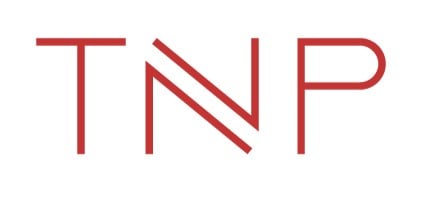

Chief legal officer and company secretary | Interswitch Group



Tochukwu Okezie
Chief legal officer and company secretary | Interswitch Group
What are the most significant cases or transactions that your legal team has recently been involved in?
Issuance of a seven-year ₦23bn 15% Series 1 fixed rate Senior Unsecured Bond through an SPV, Interswitch Africa One, under its ₦30bn Debt Issuance programme on the Nigerian Stock Exchange in October 2019.
Visa’s acquisition of a stake in Interswitch for $200m in 2020, leading to Interswitch reaching a valuation of $1bn and becoming Africa’s first fintech unicorn.
Corporate restructuring of Interswitch Group by inserting a UK Top Co in a share exchange transaction in 2020 and converting the Interswitch Topco from a Nigerian entity to a UK entity with the same shareholders.
Corporate reorganisation of Interswitch East Africa entities through a series of share acquisitions and share exchange transactions, resulting in the consolidation of ownership of Interswitch Kenya and Interswitch Uganda into an East African Holding Company in 2021.
Legal advisory on the strategic partnership between Interswitch and ACI Worldwide in 2023 to drive payments modernisation across Sub-Saharan Africa. The partnership enables banks, fintechs and other financial institutions in the region to progressively transform and modernise their payments infrastructure through ACI’s revolutionary Enterprise Payments Platform.
The team also provides general legal advisory services, contract reviews, conflict and litigation management, as well as company secretarial services, ensuring the application of applicable corporate governance standards to about ten Interswitch Group entities, including Verve Cards Services, the first domestic card scheme in Nigeria.
The team is continuously responsible for registering, protecting and managing the Group’s intellectual property across Africa, Europe and the Americas.
How have you attempted to bring the legal department closer to your business colleagues?
The relationship between legal and business is vital to the company’s continued success, so we are intentional about building and maintaining a cordial relationship with the business and other back-office functions. We circulate monthly dashboards to business leaders on requests logged and completed and join the business divisions during team bonding events.
We hold sessions with each business division across the financial year where we explain the contract requests and management cycles, and respond to concerns. We also circulate internal surveys where members of each business division have the opportunity to anonymously rate the legal team based on pre-agreed metrics which feed into our KPIs.
We are able to measure the legal team’s performance over multiple surveys and discuss improvement plans. The legal team also promotes an open-door policy that allows the business or legal team members to escalate concerns to the proper personnel where necessary.
The legal team provides relevant guidance to senior management, business divisions and subsidiaries as it actively participates in the Group’s quarterly, interim and annual business and performance review sessions.
What are some of the main legislative or regulatory changes that have impacted you?
The Companies & Allied Matters Act 2020 now permits private companies to hold general meetings electronically; court rules allow electronic filings and video conferencing (to some extent). Another example is the Evidence Act 2011, which introduced detailed provisions on the admissibility of computer-generated evidence. With contracts being digitised, the Evidence Act 2011 was a step in the right direction.
In terms of regulatory changes, the Central Bank of Nigeria (CBN) has, over the last three years, released a series of guidelines and regulations that touch on licensing categorisations of fintechs, and holding company structures for holding specific multiple licenses.
In 2020, the CBN amended the Banking & Other Financial Institutions Act (“BOFIA”). A specific amendment that impacted payment companies was the inclusion of Payment Service Providers as “Other Financial institutions”, which effectively brought payment companies under the purview of the BOFIA. This symbolised increased oversight by the Central Bank over payment companies.
In 2020, to prevent the comingling of different business activities by payment companies, the CBN also issued new license categorisations for the Nigerian Payments space, delineating the permissible activities along four broad payment license categories and providing the capital requirements for each license. Also, in 2021, the CBN issued the Guidelines for Licensing & Regulation of Payment Service Holding Companies in Nigeria, with a critical provision that companies with mobile money licenses and switching licenses could only carry out both activities under a Payment Service Holding Company structure. These regulations impacted the existing structure of the Interswitch Group; hence, the team was involved in incorporating and obtaining a CBN license for the Interswitch Payment Service Holding Company
Generally, these CBN regulations are targeted at streamlining the operations of fintechs, and they clarify how regulators group fintech operations. By defining permissible activities and applicable minimum capital requirements for different fintechs, general counsel can provide adequate advice on appropriate corporate structures that ensure fintechs operate within the regulatory guidelines.
In view of the Group’s active Series 1 ₦23bn Bond and ₦30bn Debt Issuance Programme, it has periodic reporting requirements to the Nigeria Exchange Regulation (NGX Regulation) and the Securities and Exchange Commission (SEC). The legal team is proactively positioned to ensure a seamless and healthy relationship between the Group and the SEC as the team understands that a failure to meet the relevant reporting requirements or deadlines could attract penalties.